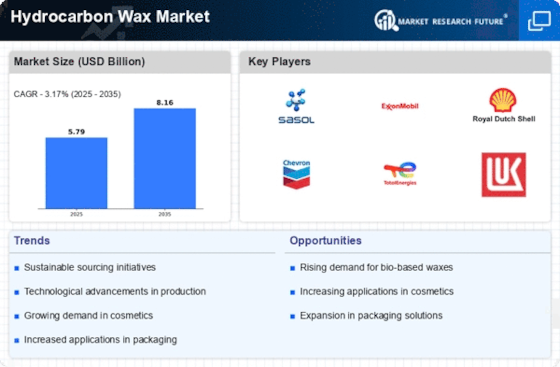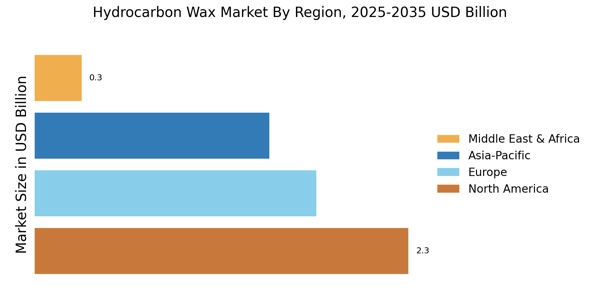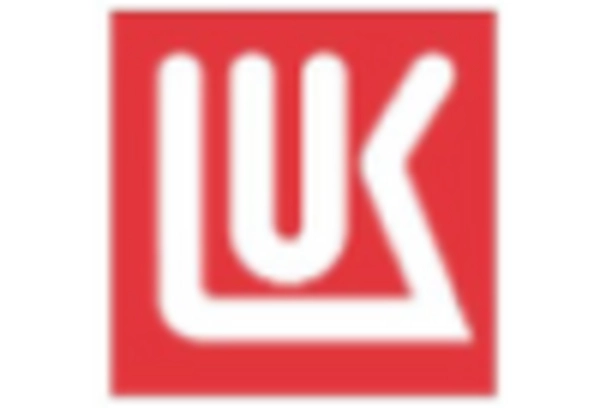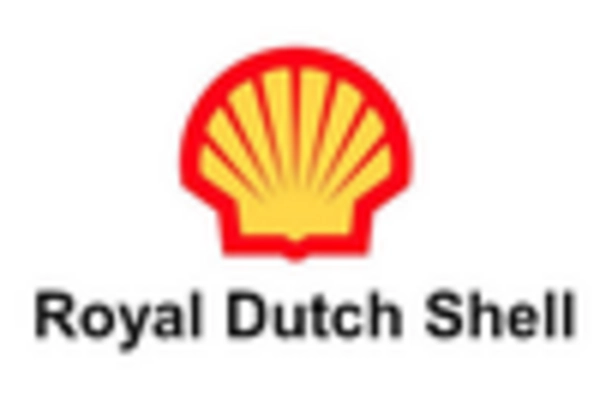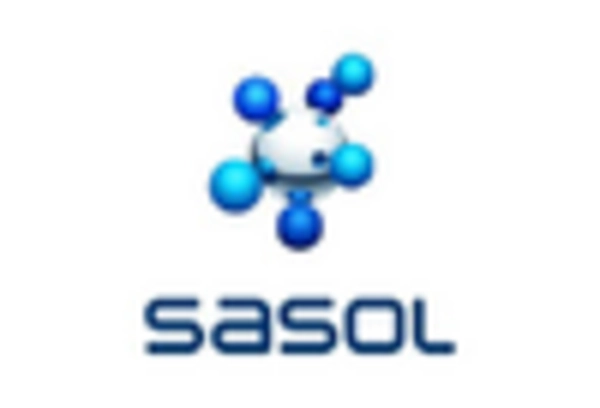Rising Demand in Packaging Industry
The Hydrocarbon Wax Market experiences a notable surge in demand from the packaging sector. This is primarily due to the increasing need for sustainable and efficient packaging solutions. Hydrocarbon waxes are utilized in various applications, including coatings and sealants, which enhance the durability and moisture resistance of packaging materials. Recent data indicates that the packaging industry is projected to grow at a compound annual growth rate of approximately 4.5% over the next five years. This growth is likely to drive the demand for hydrocarbon waxes, as manufacturers seek to improve product performance and sustainability. Consequently, the Hydrocarbon Wax Market is poised to benefit from this trend, as companies increasingly prioritize eco-friendly materials in their packaging solutions.
Growth in Personal Care and Cosmetics
The Hydrocarbon Wax Market is significantly influenced by the expansion of the personal care and cosmetics sector. Hydrocarbon waxes are essential ingredients in various cosmetic formulations, including lip balms, creams, and lotions, due to their emollient properties and ability to provide a smooth texture. The personal care market has shown resilience, with a projected growth rate of around 5% annually. This growth is attributed to rising consumer awareness regarding personal grooming and the increasing demand for high-quality cosmetic products. As a result, the Hydrocarbon Wax Market is likely to see a corresponding increase in demand, as manufacturers continue to innovate and develop new formulations that incorporate hydrocarbon waxes.
Advancements in Industrial Applications
The Hydrocarbon Wax Market is witnessing advancements in industrial applications, particularly in the automotive and construction sectors. Hydrocarbon waxes are utilized in various formulations, including lubricants and coatings, which enhance the performance and longevity of products. The automotive industry, for instance, is expected to grow at a rate of approximately 3% annually, driven by innovations in vehicle design and manufacturing processes. This growth is likely to create new opportunities for the Hydrocarbon Wax Market, as manufacturers seek to improve product performance and reduce environmental impact. Furthermore, the construction sector's increasing focus on sustainable building materials may further bolster the demand for hydrocarbon waxes in protective coatings and sealants.
Emerging Markets and Economic Development
The Hydrocarbon Wax Market is poised for growth due to emerging markets and economic development in various regions. Countries experiencing rapid industrialization and urbanization are increasingly adopting hydrocarbon waxes in multiple applications, including packaging, personal care, and industrial uses. For instance, regions in Asia and South America are witnessing a rise in disposable income, leading to increased consumer spending on personal care products and packaged goods. This trend is expected to drive the demand for hydrocarbon waxes, as manufacturers cater to the evolving needs of consumers. The Hydrocarbon Wax Market may benefit from this shift, as companies expand their operations to meet the growing demand in these emerging markets.
Regulatory Support for Sustainable Practices
The Hydrocarbon Wax Market is likely to benefit from regulatory support aimed at promoting sustainable practices. Governments across various regions are implementing policies that encourage the use of eco-friendly materials in manufacturing processes. This regulatory environment is fostering innovation and investment in sustainable alternatives, including hydrocarbon waxes derived from renewable sources. As companies strive to comply with these regulations, the demand for hydrocarbon waxes is expected to rise. Furthermore, the Hydrocarbon Wax Market may see increased collaboration between manufacturers and regulatory bodies to develop standards that promote sustainability while ensuring product performance. This alignment could enhance the market's growth trajectory in the coming years.


